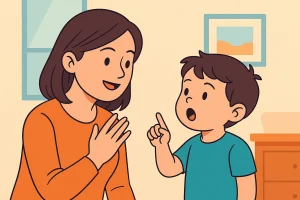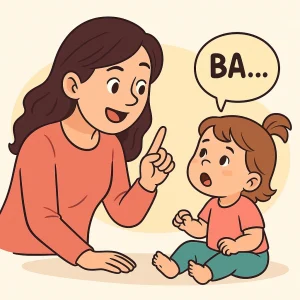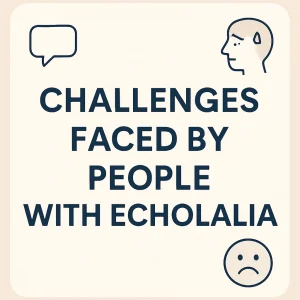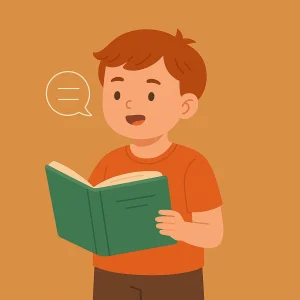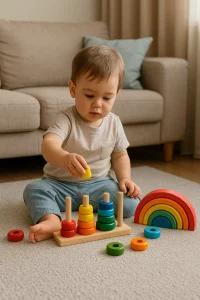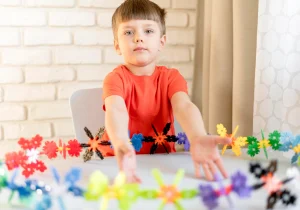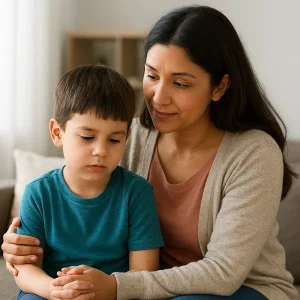Online Group Therapy for Kids: Key Pros and Cons
Last Updated: August 29, 2024
In recent years, the landscape of therapy has dramatically transformed, especially with the advent of digital platforms that bring therapeutic sessions right into our homes. This shift towards online therapy has become particularly relevant given the global changes driven by technology and unexpected shifts in our daily lives. But while adults have found solace in virtual counseling sessions, a significant question remains: Is online group therapy beneficial for children?
With more parents exploring online solutions for their children’s emotional and mental health needs, it’s crucial to understand how these digital environments cater to young minds. Group therapy, a method traditionally conducted face-to-face, now often takes place in virtual rooms where interactions unfold across screens. This new setting offers unique advantages and challenges that are important for parents to consider when choosing the best support for their children.
Understanding Online Group Therapy
Online group therapy is like traditional group therapy sessions but done over the internet. It usually has a trained therapist who leads discussions among people with similar issues, using video calls. This lets everyone talk and support each other just like they would if they were in the same room.
This type of therapy is very convenient. It helps families who live far away or those who are busy and can’t travel. Online therapy makes it easy to get support from home. But, it also has some challenges. Since everyone is not in the same room, it might be harder for people to feel connected and understand each other’s emotions, which could change how the group works together.
Also read: Revolutionize Speech Therapy with Wellness Hub’s Tele Basics
Pros of Online Group Therapy for Children
1. Accessibility
Online group therapy brings mental health support to kids in far-off or underserved areas. It makes sure that no child, no matter where they live, misses out on mental health help. This is especially helpful for families far from cities or places with few mental health professionals. Online therapy connects them to the help they need.
2. Comfort and Familiarity
Kids often feel more comfortable and open in their own home. Online group therapy lets them have sessions in their own space, surrounded by familiar things. This comfort can make it easier for kids to talk about their feelings and get involved in the therapy, without the stress of being in a strange or clinical place.
3. Flexibility
Online therapy is great for busy families. It cuts out travel time to a therapist’s office, making it easier to fit therapy into the family schedule. Therapists can also offer sessions at different times, like evenings or weekends, which can be more convenient for families.
5. Innovative Methods
Online therapy uses digital tools and games that kids enjoy and are familiar with. Therapists might use apps, online games, and worksheets to make therapy interesting and engaging. This approach not only keeps therapy fun but also helps keep kids interested and involved in their sessions.
Cons of Online Group Therapy for Children
Engagement Challenges
Online therapy has its upsides, but it can be tough for young kids or those who get easily distracted. Staring at a screen for a long time can be hard, and without being in the same room, kids might not pay attention or get involved as much. For kids who need direct interaction, online sessions might not feel as engaging, which could make therapy less effective. To help with this, parents and therapists can try mixing in breaks or different activities to keep these kids focused.
Limitations in Communication
A big issue with online therapy is that therapists have a hard time seeing the body language and facial expressions that help them understand how a child feels. In person, these non-verbal signs are very telling, but online, many of these cues can get missed. This can make it harder for therapists to connect deeply with kids, as some important parts of communication don’t come through as well digitally.
Sensory Experience
Another downside is that online therapy doesn’t involve physical interaction with objects like play dough or sand, which are a big part of traditional therapy, especially for little kids or those with sensory needs. Although online tools can provide visual and sound interactions, they can’t replace the hands-on activities that are often key to helping children express themselves and engage in therapy.
Ideal Candidates for Online Group Therapy
Online group therapy isn’t perfect for everyone, but it can be really helpful for some kids. Knowing which children might get the most out of online therapy can help parents decide if it’s a good choice for their child.
Children Dealing with Anxiety or Social Issues
Kids who feel anxious or have trouble with social situations often do well with online group therapy. The virtual setting can be less scary than being in a room with other kids, making it easier for them to talk and join in. The screen gives them a bit of space, which can lessen the stress of direct interaction and help them feel more comfortable sharing and connecting with others who have similar challenges.
Scenarios Where Online Therapy Works Well
- Long-term Illness or Mobility Issues: Kids who can’t go to regular therapy sessions because of illness or difficulty moving around find online therapy very helpful. They can join in from home without needing to travel.
- Rural or Remote Locations: For kids in rural or far-off places, getting to specialized mental health care can be tough. Online therapy lets them access help no matter where they are.
- During Times of Crisis: Events like pandemics show that online therapy can be vital. It keeps therapy going when meeting in person isn’t possible, ensuring kids still get support.
- Introverted or Shy Children: For kids who are quiet or shy, online therapy can be easier to handle than face-to-face groups. They can participate more comfortably from home, which can make joining in less overwhelming.
Pros and Cons of Online Group Therapy for Children
| Pros | Cons |
|---|---|
| Accessibility | Engagement Challenges |
| Accessible from any location, reduces barriers for children in remote areas. | Difficulty maintaining attention, especially for young or easily distracted children. |
| Comfort and Familiarity | Limitations in Communication |
| Sessions in a familiar environment can make children feel safer and more open. | Harder for therapists to pick up non-verbal cues, which can impede understanding emotional states. |
| Flexibility | Sensory Experience Limitations |
| Flexible scheduling and no commute time enhance convenience for families. | Lack of physical interaction with therapeutic tools, important for sensory integration therapies. |
| Innovative Methods | |
| Use of digital tools and interactive methods that engage tech-savvy kids. |
Considering Online Group Therapy for Your Child
When thinking about whether online group therapy is a good fit for your child, it’s important to look at several factors. These can help you pick a program that’s just right for your child’s needs and will support their growth and healing.
Things to Think About
- Child’s Age: How old your child is can affect how well they do in online therapy. Young kids might find it hard to stay focused during virtual sessions, while older kids and teens might like the privacy and independence it offers. Think about whether the online format suits your child’s age and stage of development.
- Type of Concerns: What your child is dealing with matters a lot. Issues like anxiety or shyness might work well with online sessions. But more complex problems needing more hands-on care might not be as suitable for online therapy.
- Comfort with Technology: Check if your child is comfortable using digital platforms. Some kids find it easy and can benefit from online therapy, while others might find it less personal or distracting.
Choosing the Right Online Therapy Program
- Check Therapist Credentials: Make sure the therapists are licensed and experienced in children’s issues. Their skills really impact how helpful the therapy will be.
- Technology Needs: Make sure you have the right technology and a good internet connection. This makes sure your child can join in without any tech problems.
- Privacy and Security: Choose a therapy service that protects your child’s privacy and keeps their data safe.
- Specialized Programs: Look for therapy programs that focus on specific issues like anxiety, ADHD, or social skills. These specialized programs can be more directly helpful for your child’s needs.
- Trial Sessions: If you can, try a session to see how your child likes it. This can help you see if it’s a good match.
- Parental Involvement: Find out if you need to be involved in the therapy sessions. Some programs might want you to join in or learn ways to help your child at home.
How Wellness Hub Supports Online Group Therapy for Children
At Wellness Hub, we are dedicated to providing accessible and effective mental health services to children through our comprehensive online group therapy programs. We understand the unique challenges and opportunities that virtual therapy presents, and our approach is designed to make the most of the digital environment to support children’s mental health.
Tailored Support for Diverse Needs
Our online group therapy sessions are led by experienced therapists who specialize in children’s mental health. They use a blend of traditional therapeutic techniques and innovative digital tools to engage children in meaningful ways. By creating a safe and welcoming online space, we help children explore their feelings, develop healthier coping mechanisms, and build social skills in a supportive group setting.
Resources and Tools
We provide a variety of resources to enhance the online therapy experience. This includes interactive activities, educational materials for both children and parents, and access to a supportive community. Our platform is designed with security and confidentiality in mind, ensuring that all sessions are private and information is protected.
Conclusion
At Wellness Hub, we focus on making mental health services accessible and effective for all children. Our online group therapy sessions are led by experienced therapists and are enriched with interactive activities and educational materials. We maintain a secure and private environment, ensuring that every session protects the participants’ privacy.
If your child is facing emotional challenges or social difficulties, our online group therapy programs are here to help. We invite you to become part of our community where we support each child’s journey towards better mental health. For more information on how our programs can benefit your child, visit our Online Group Therapy for Children page on our website. Join us at Wellness Hub, and see the positive changes we can bring to your child’s life.
Frequently Asked Questions:
1. What is online group therapy for children?
Online group therapy for children involves sessions where multiple kids interact with a therapist via digital platforms. It’s designed to help children express themselves and connect with peers facing similar issues, all from the comfort of their homes.
2. Who can benefit from online group therapy?
Children dealing with anxiety, social issues, or those who have limited access to traditional therapy due to geographical or physical limitations are ideal candidates for online group therapy.
3. How does online therapy compare to in-person sessions?
While online therapy offers unparalleled convenience and accessibility, it may lack certain elements of in-person interactions such as physical presence and non-verbal communication. However, it’s an effective alternative for many families, especially during times when face-to-face meetings are not feasible.
4. What should parents consider before choosing online group therapy for their child?
Parents should evaluate factors like the child’s age, nature of their concerns, comfort with digital communication, and the security features of the online platform. Ensuring that the therapy aligns with the child’s specific needs is crucial.
5. Can online group therapy be as effective as traditional therapy?
Yes, for many children, online group therapy can be just as effective as traditional therapy, especially when sessions are conducted by skilled therapists who utilize interactive and engaging methods suited for the digital format.
6. What are the technological requirements for online group therapy?
A stable internet connection, a computer or tablet with a camera, and access to the therapy platform are typically required. Ensuring good audio and video quality can enhance the effectiveness of the therapy sessions.
7. How does Wellness Hub ensure the privacy and security of online group therapy sessions?
Wellness Hub uses secure, encrypted platforms designed specifically for teletherapy to protect privacy and confidentiality. We adhere to strict data protection regulations to ensure all personal information and session details are safeguarded.
8. Where can I find more information about Wellness Hub’s online group therapy services?
For more detailed information about our services and to understand how we can help your child, please visit our Online Group Therapy for Children page.
9. What types of issues are addressed in online group therapy sessions at Wellness Hub?
At Wellness Hub, our online group therapy sessions cover a wide range of issues including anxiety, depression, social skills development, and behavioral challenges. Each session is tailored to meet the specific needs of the group, ensuring that all participants receive targeted support.
10. How can parents support their child during online group therapy sessions?
Parents can support their child by ensuring a quiet and comfortable environment for the sessions, discussing therapy goals with their child, and reinforcing the skills learned during therapy at home. Regular communication with the therapist can also help parents track their child’s progress and contribute to ongoing adjustments to the therapy plan.
About Author:
Lasya Vooturi,
Clinical Psychologist (A) & Behavioral Therapist
Lasya holds a Professional Diploma in Clinical Psychology from Amity University, where she deepened her understanding of psychological principles from March 2023 to March 2024. With over a year of dedicated experience as a Behavioral Therapist, Lasya has honed her skills in applying effective therapy techniques tailored to individual needs. Fluent in Telugu, Hindi, and English, she is adept at connecting with a diverse range of clients, ensuring comprehensive communication and understanding. Lasya’s approach is grounded in empathy and scientific rigor, making her a trusted ally in navigating mental health challenges.
Book your Free Consultation Today
Parent/Caregiver Info:
Client’s Details:
* Error Message
